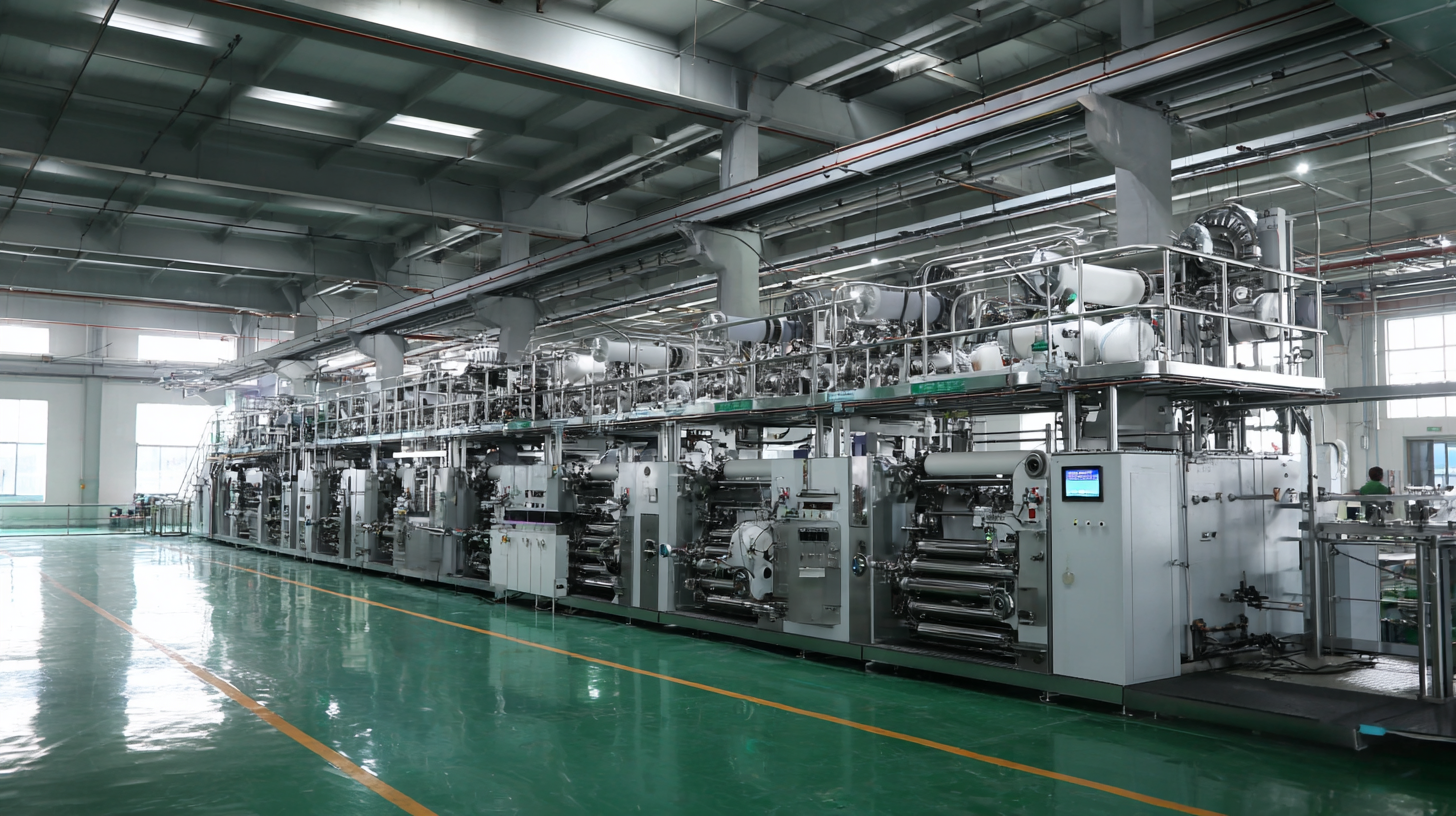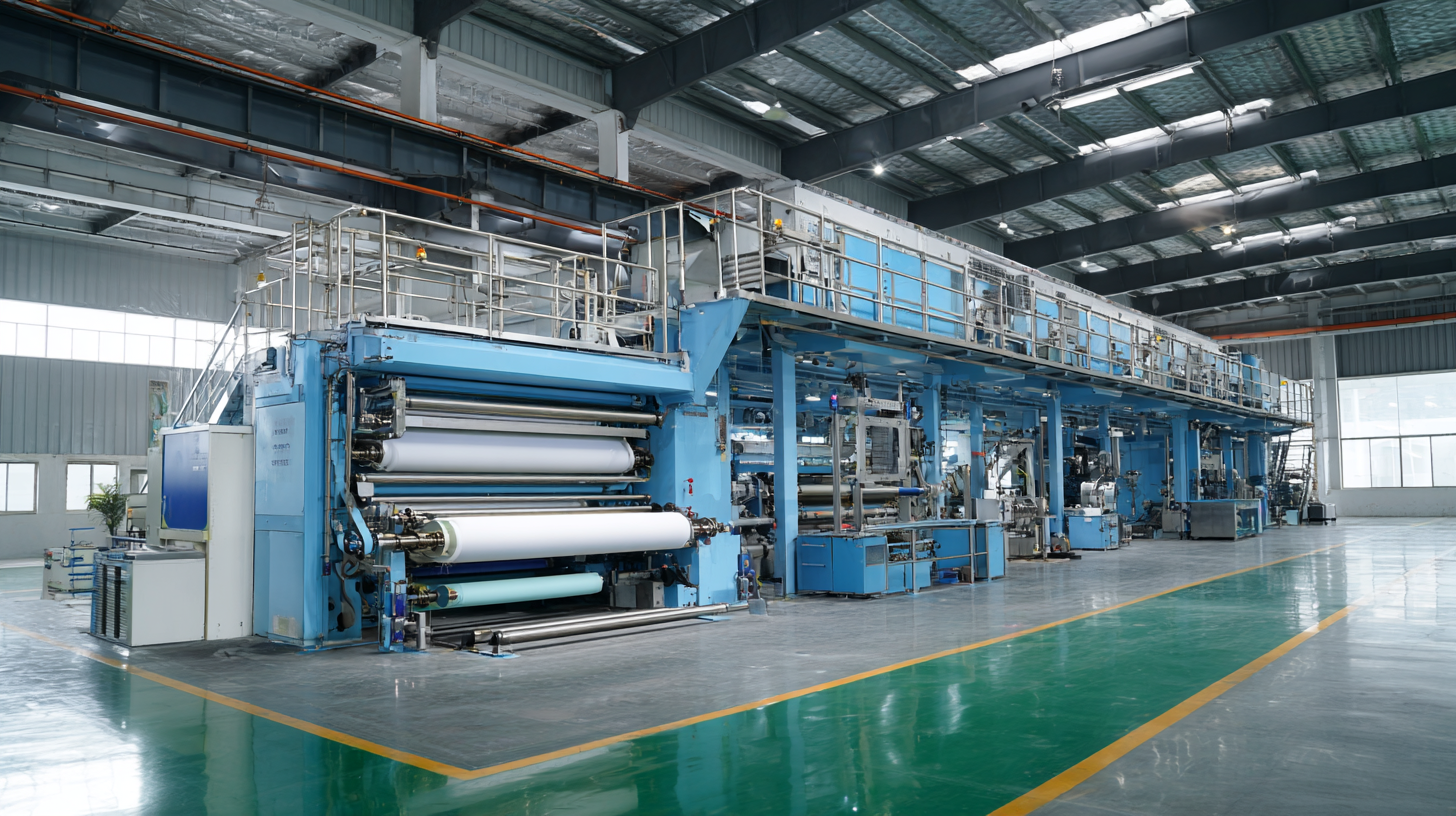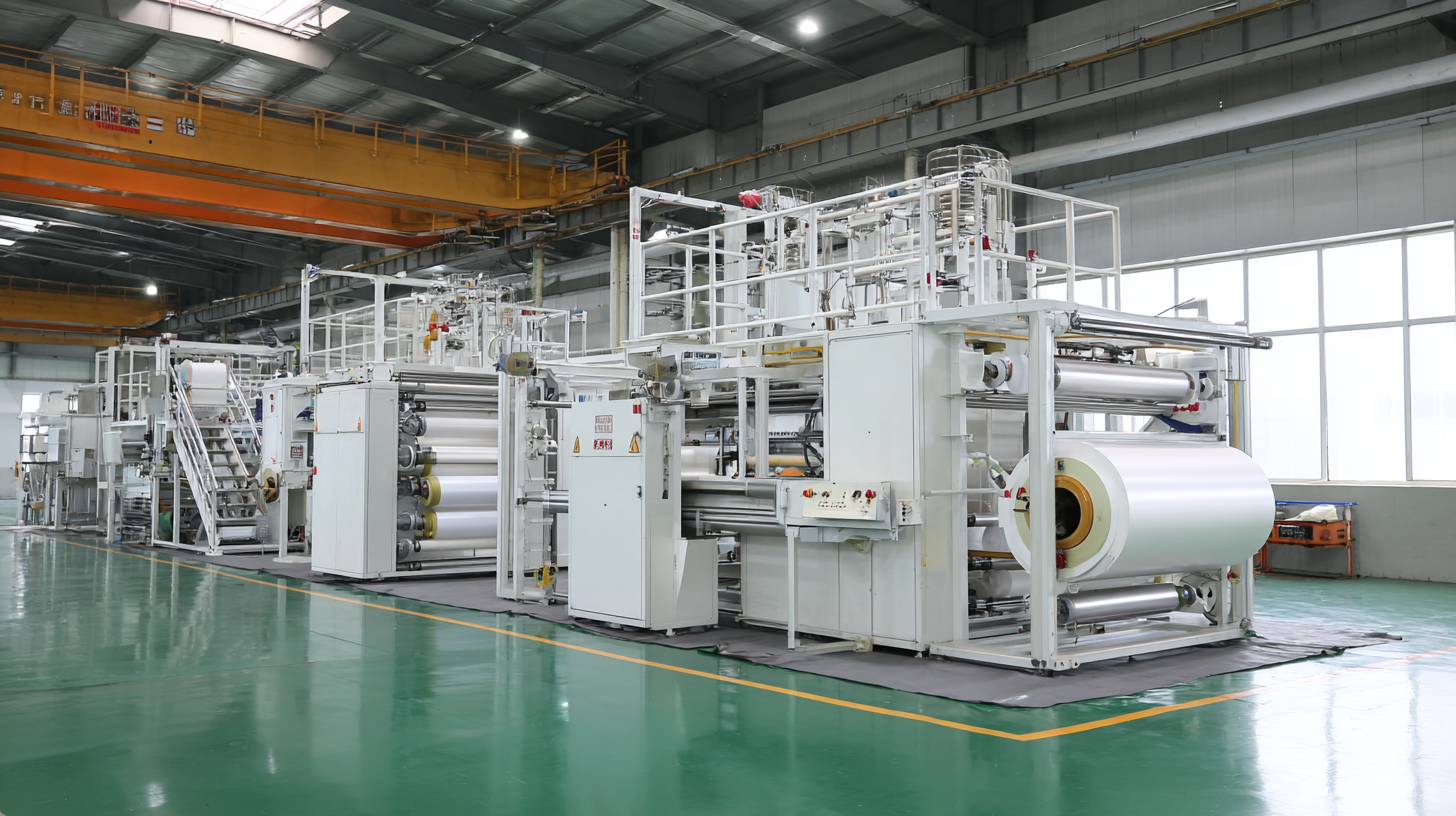Leave Your Message
In recent years, the global textile industry has witnessed a remarkable shift towards sustainability, with lyocell fibers emerging as a leading contender for eco-friendly textiles. The demand for lyocell, known for its biodegradable properties and low environmental impact, has surged, prompting advancements in production technology.

According to a recent market report by Global Market Insights, the lyocell fiber market is projected to reach USD 1.2 billion by 2025, growing at a CAGR of over 10%. This growing demand underscores the necessity for high-efficiency production methods, making "Automatic Lyocell Equipment" a pivotal innovation in enhancing manufacturing processes.
As leading manufacturers in China rise to meet this demand, their sophisticated automatic equipment is setting new standards for quality and efficiency, positioning the country at the forefront of global exports in the lyocell sector.
The demand for Lyocell fibers is on the rise, driven by a growing global consciousness about sustainable textiles and environmentally friendly materials. As per industry reports, the global carpet and rug market is projected to reach a staggering $58.93 billion by 2024, with expectations to grow to $64.19 billion in 2025 and surge to $133.94 billion by 2032. This remarkable growth trajectory reflects a broader trend towards the use of sustainable and high-performance materials, including Lyocell, which is renowned for its biodegradability and eco-friendly production process.
The increasing focus on sustainability in fashion and interior design has positioned Lyocell as a desirable alternative to traditional fibers. Not only does Lyocell offer exceptional softness and breathability, but it also aligns with consumer values that prioritize ethical sourcing and production practices. The combination of rising consumer demand for sustainable products and advancements in automatic Lyocell equipment made in China indicates a bright future for manufacturers looking to lead in global textile exports. As this sector develops, it is clear that embracing innovative, environmentally friendly technologies will play a crucial role in meeting the increasing consumer expectations and market demands for sustainable textiles.
In the competitive landscape of textile manufacturing, the importance of efficiency and quality cannot be overstated. Superior automatic Lyocell equipment, particularly those developed in China, is revolutionizing production processes. This advanced technology leverages automation to streamline workflows, significantly reducing operational costs while enhancing output. By minimizing manual intervention, manufacturers can also limit human error, leading to consistently high-quality products.
Moreover, the innovation behind these automatic Lyocell systems ensures that they are not only efficient but also environmentally sustainable. The equipment is designed to optimize resource use, allowing for reduced water and energy consumption during the production cycle. As the global demand for sustainable textiles rises, investing in superior Lyocell equipment transforms challenges into opportunities, empowering manufacturers to meet regulatory standards and consumer expectations alike.
This synergy of efficiency and quality positions Chinese manufacturers at the forefront of the global textile export market.
China’s contribution to the Lyocell industry is increasingly significant, driven by its unmatched manufacturing capabilities. As of 2023, China accounted for approximately 29 percent of global manufacturing output, a staggering margin compared to other nations. This dominance facilitates not only the production scale but also the technological advancements seen in automatic Lyocell equipment, positioning China as a leader in this sector. With manufacturers leveraging innovative machinery, the production of Lyocell—a sustainable fiber known for its softness and biodegradability—has become more efficient and cost-effective.

Emerging economies often face challenges in competing with China's vast manufacturing capabilities, particularly given China’s recent expansion in industrial capacity. This overcapacity has implications for the global supply chain, as it can lead to price pressures that hinder the growth of manufacturing sectors elsewhere. For instance, countries like Vietnam and Brazil are rethinking their strategies to enhance productivity and competitiveness in light of China’s overwhelming presence. The evolution of Lyocell manufacturing in China reflects broader trends in how countries are navigating production efficiencies and innovation, showcasing China’s vital role in shaping future supply chains across various industries.
The textile industry is undergoing a significant transformation as sustainability becomes a central theme in production processes. Among various eco-friendly materials, Lyocell stands out due to its regenerative nature and minimal environmental impact. Produced from sustainably sourced wood pulp through a closed-loop process, the Lyocell production method significantly reduces water consumption and eliminates harmful chemicals, making it a cleaner alternative to conventional textiles. This innovative approach not only curtails waste but also promotes a circular economy, ensuring that the fibers can biodegrade at the end of their lifecycle.
China, leading the charge in global exports of advanced Lyocell equipment, is at the forefront of this sustainable revolution. With state-of-the-art technology, Chinese manufacturers are optimizing the production process to enhance efficiency while maintaining the ecological integrity of Lyocell. By investing in superior automatic equipment, they enable textile producers around the world to create high-quality, eco-friendly fabrics that align with the growing consumer demand for sustainable fashion. As the global market shifts towards environmentally responsible practices, Lyocell equipment made in China plays a crucial role in fueling this green movement and securing a more sustainable future for the textile industry.
| Dimension | Value |
|---|---|
| Global Lyocell Market Size (2023) | $1.2 billion |
| Annual Growth Rate (2023-2030) | 9.5% |
| Percentage of Lyocell from Recycled Sources | 25% |
| CO2 Emission Reduction Compared to Cotton | 50% |
| Water Consumption Compared to Conventional Fibers | 75% less |
| Biodegradability of Lyocell | 100% within 6 weeks |
| Exports of Lyocell Products from China (2022) | $600 million |
| Number of Lyocell Production Facilities in China (2023) | 15 |
As the global market continues to evolve, the choice between lyocell fibers and traditional fibers becomes increasingly significant for manufacturers and consumers alike. Lyocell, known for its eco-friendly production process and superior qualities, offers several advantages over conventional fibers like cotton and polyester. These include enhanced biodegradability, improved moisture-wicking properties, and a silky-smooth texture that adds to comfort and style. Moreover, the production of lyocell requires less water and energy, aligning well with sustainable practices that are becoming essential in today’s textile industry.

Tips: When considering a switch to lyocell, manufacturers should evaluate their existing supply chain for compatibility with these eco-friendly materials. Additionally, investing in high-quality automatic lyocell equipment can optimize production efficiency and ensure consistent product quality. It’s also beneficial to stay informed about consumer trends that favor environmentally friendly products to better position your offerings in the global market.
Comparatively, while traditional fibers have their established market presence, their environmental impacts present challenges that modern consumers are increasingly aware of. By emphasizing the sustainable aspects of lyocell, brands can not only differentiate themselves but also tap into a growing demographic that prioritizes ecological responsibility. As the demand for innovative textiles rises, adopting lyocell technology can be a strategic move for businesses aiming for long-term success in global exports.
